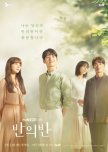
Unfortunately, like an emotion, it has to be felt to be understood. Just like words frequently falter at expressing our feelings so they also falter at describing this beautiful drama.
With dismal ratings in Korea, the show even ended up being cut to 12 episodes. But even though the loss of those four is a tragedy and the show was forced to speed up its storytelling to compensate, it is still an almost-perfect study of grief, loss and how we grapple with the hole people leave in the world when they pass.
Jung Hae-in always gives lovely understated performances and his portrayal of the inventor Moon Ha-won is no exception. Ha-won has loved and lost but always from afar as he observes life but fails to live it. He is an inventor in the world of artificial intelligence working on recreating the personalities of lost loved ones for therapeutic purposes. He is driven by the need to understand both the sudden death of his mother when he was 18 and the loss of his childhood friend, Kim Ji-soo (Park Joo-hyun), whose husband insisted she break ties with him after their marriage.
While working on the project he acquires a recording studio to lay down voices and meets orphaned sound engineer, Han Seo-woo. Chae Soo-bin is wonderful here as the warm but still grief-stricken Seo-woo. These two embark on a healing relationship of mutuality and reciprocity. This couple's ability to understand and accept the other's losses and to each give and take to an equal extent is heartwarming to watch unfold.
At one point in the drama, Ha-won suggests Banbogi: a meeting between two people who love each other at a midway point between the two. Bangobi encapsulates the reciprocity and mutuality between the two. One does not go to the other, whether physically or emotionally. They always meet in the middle.
Our core couple orbit the black hole that is the loss of Ji-soo. But around them swirl a host of other damaged characters. Ha-won's niece , Moon Soon-ho (Lee Ha Na) who has taken nine years to get over a bad breakup. Jis-oo's controlling and almost-abusive husband, Gang In-wook (Kim Sung-gyu). And the found family of guests living in the boarding house that Seo-woo took shelter in after the death of her family.
While the show examines grief in all its iterations - whether through the death of a loved one, a relationship, or even the person you used to be - it's also about the way in which we grapple with the hole a person leaves in the world when they're gone. How we want just a piece of them to hold onto and how we struggle with the realisation that we will never know what they were thinking because we can never speak to them again.
The Ji-soo AI that Ha-won creates becomes that piece. But it's through Ha-won and In-wook's reactions to that piece that we see most clearly what this drama is trying to say. People are not pieces or object to possess, control or dominate. We will never own them, just as we will never know truly what they think and feel. But that isn't necessary to gain comfort and strength from them and to give that comfort and strength in return.
Grief is overcome by connection and community but most of all through true mutuality. And that's the most heartwarming message of all.
I can only hope that now it's over, people can finally realise what a gem this show was. And maybe, just maybe, next time Korea produces something as finely-written and beautiful as this, people will watch it.
Was this review helpful to you?
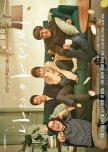
Lee Sun-kyun plays Park Dong-hoon, a numb middle-aged engineer in a tired marriage who finds himself entangled with Lee Ji-an, a very young, almost unsocialised woman played with an extraordinary subtlety and quiet intensity by IU. Ji-an has been tasked to help get rid of Dong-hoon by the CEO of his company, Do Joon-young (Park Young-min) who is having an affair with Dong-hoon's wife. Ji-an wiretaps Dong-hoon's phone and finds herself identifying with his unhappiness, even as she is drawn to his inherent kindness.
Surrounded by a cast of unhappy and dissatisfied people, this is a show about middle age and about failure but in the end about how our lives are enriched by kindness and community. Ji-an is a damaged young woman who has endured almost unimaginable tragedy but through her relationship with Dong-hoon they are both able to heal and to finally pursue happiness.
The performances of the entire cast are extraordinary but it's the sparse script, off-kilter cinematography and haunting pensive OST that give the show a sensibility that's hypnotic, almost mesmerising. It’s melancholic and a little weird – but in the kind of way that people are a little weird. It’s grim and there’s very little joy in it but the tone and lack of joy is presented in a way that makes it analogous to the disappointments and mindless drudgery of middle-age.
But beyond the themes of failure and the cold darkness of winter as a metaphor for dissatisfaction, this is a show about the triumph of kindness. Portrayed so often as a weakness, it is instead Dong-hoon's kindness that is his greatest strength. It is kindness, community and love that is celebrated and through that celebration this show finds a beauty that transcends mere television.
It is, for now, the best show of 2018.
Was this review helpful to you?

This review may contain spoilers
I saw a movie recently where a character said "You like somebody because of things but you love them despite things” and I think that applies to this show. This is a messy, gleeful and heartwarming tale about a chef, a gangster and an heiress who lose everything but then come together to reclaim it. Chinese masterchef Poong (Joon Ho), reformed gangster Chil-sung (Jang Hyuk) and lonely socialite Sae-woo (Jung Ryeo Won) have nothing in common but their shared calamities: all three hit rock bottom in the first few episodes.
These three characters with different backgrounds and temperaments are the disparate ingredients this show promises to turn into jjajangmyeon - the signature Korean/Chinese fusion dish that Poong is an expert at and that Chil-sung and Sae-woo are perpetually hungry for. While the first few episodes are almost unhinged in the seeming-randomness of their elements, the show makes it clear that Poong is the cook that's going to bring them together in one perfect dish.
For the fist half of its run, this was a show that was about jjajangmyeon but was also jjajangmyeon itself: televisual fusion cuisine. That’s why the show was originally so messy and it’s why I loved that the show was so messy. Because it seemed to be saying that people, relationships and life are a huge mashup of disparate things and it’s not about one being ‘good’ and the other ‘bad’ but about the proportions of each ingredient. Throughout the first half, all our characters were floundering because their life recipes weren’t right yet. If life is a recipe you're constantly refining, then all our characters were still deciding on the menu.
From the beginning, the show was extremely clever - but sometimes too clever. Its brilliant use of metaphors and imagery is a device I personally love but even I thought it was a bit overdone in the beginning. There were episodes where I was so busy tracking its use of hot and cold and the black and white that I missed plot. Nietzsche was thrown in there, first to intrigue us and then to confuse us. Poong was either a Nietzscheism superman or its antithesis; the writers never seemed to be sure. I know a lot of viewers simply couldn't cope with the chaos and dropped out. I stayed in, loving every minute and waiting for the writers to bring it all together in one glorious dish of fusion cuisine.
It's probably not surprising that this did not happen although it's not entirely clear what went wrong. Originally slated for 20 episodes (40) and then cut to 19 (38), maybe the show suffered from losing an episode, maybe it was three episodes too long. The show went on hiatus for two weeks and when it came back it was seemingly a shell of its former self. Characters disappeared, plots were dropped, major plot points were resolved quickly and anti-climactically, and others were dragged down with standard, almost pedestrian, kdrama plotlines. It was almost as though the writer had been instructed to play it more safe and the quirky, surreal magical realism was replaced with the plotline of a standard romcom.
The minor characters often detracted rather than added to the show in the end. The antagonists, which started off suitably hateful and conniving, became one-dimensional villains of little import, if they didn't disappear completely. The Giant Hotel may have loomed over the Hungry Wok like a corporate Goliath but David didn't defeat it so much as replace it and the little restaurant seemed more beset by disloyalty and ingratitude from its employees than by external threats.
Poong and Sae-woo remained adorable and sexy and wonderful and Chil-sung held a kitten every episode so the show is worth watching till the end. No matter how many plots got dropped or how many characters disappeared, the relationship between the three leads was the show's saving grace. The romance between Poong and Sae-woo is passionate and sweet - just the like sweet-and-sour pork that is his other signature dish. The bromance between the two men is loving and supportive. And while there is technically a love triangle here, it's handled with maturity and without unnecessary angst. These three people love each other and watching them come together is the show's best element.
In fact, show ends well. It's just not the affordable gourmet meal we were promised but more like a rushed lunchtime bowl of noodles while we're trying to get back to work.
In the end, I love Greasy Melo despite its flaws and I guess that means my Love Is True. I can dream of a more perfect version of this show where the writers were able to use all the ingredients they prepared to make the perfect meal instead of leaving half of them on the chopping board. But if lasting love is based on acceptance, then I accept. This is the show it is.
9/10
Was this review helpful to you?
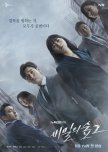
Another perfect season of Forest of Secrets (Stranger)
Forest of Secrets continues to shows Korea how it should be done. This is what happens when a writer as skillful as Lee Soo-yeon gets teamed up with brilliant actors, a talented director and a PD that understands how to bring all of that talent together.Jo Seung -woo is back as Hwang Shi-mok, the incorruptible prosecutor suffering from brain damage following surgery when he was young. He is joined once again by idealistic police officer Han Yeo-jin (Bae Doo-na). Set several years after the events of the first season, time and an inherently corrupt system has not been kind to either character, both ground down by the machinery of justice and both clearly nearing burnout.
This season starts with fog, Shi-mok's headlights illuminating it faintly and this image underpins everything the writer is trying to tell us about the quest for justice. Which way do we go through the fog? What step do we take? Which direction is the right one and which just gets us more lost? While blood splatter led us through the forest in the first season, there is no clear direction here: just people going through the motions and wondering whether they make any difference in the world.
The tone of season 2 is not just grim, it's leaden. The weight of those years bears heavily on our two protagonists as they attempt to navigate their way out of the fog, their path lit however dimly by a belief that justice is possible even if the pursuit of it is exhausting.
Forest of Secrets has grounded its narrative in this season in the fight between the police and the prosecution over investigative rights. As the infighting accelerates and the two sides seem more intent in slinging dirt than in serving the public, corruption gathers apace as it always does. And with our eternal partners Shi-mok and Yeo-jin on opposite sides, both will begin to question their role, their ethics and their ability to retain their independence and objectivity in an environment where it seems everyone is compromised in some way.
Forest of Secrets 2 may not be as rollicking as its first season but the writing is even more skillful, insightful and mature. We flounder in the dense fog as much as our characters do at first, waiting for that path out. And by putting us there and building that atmosphere, everyone involved shows us that they are truly at the top of their game.
Everything - the writing, direction, music, design - every aspect of this drama is almost perfect as its first year was as well.
This remains the pinnacle of Korean drama and its sophomore season merely cements that rank.
Was this review helpful to you?

This review may contain spoilers
Like dramas with contract marriages? Think this is the drama for you?YOU ARE WRONG.
STOP NOW.
DO NOT PRESS PLAY.
This is the strongest warning I can possibly give about a drama.
At the beginning, this drama had a lot of things happening that were ridiculous - and by that I mean silly, overblown makjang. To be honest, for the first few episodes, I kept watching just to see how ridiculous the plot could get.
Unfortunately, it's not the overwhelming list of silly that is the problem here.
List of silly:
Amnesia
Hypnosis
Drugging
Stalking
Cancer scares
Kidnapping.
And more...
The biggest problem with this drama is that it is a shocking apologia for domestic abuse of a particularly subtle and manipulative kind.
Cut it whichever way you want: Xia Lin's husband is almost sociopathic in his possessiveness. He controls her every move, manipulates her, gaslights her, tracks her, stalks her, lies to her, imprisons her. And worst of all, all of this is framed as evidence of his great epic love. It is not. This is not romantic, it is hugely disturbing and hugely wrong.
This is the story of an abused woman who tried to escape her abuser but ends up falling back into the relationship anyway. It would actually work quite well as a warning against men who behave like this; using their wealth and power to control another person. Ling Yi Zhou is the most abusive male lead I've seen in a drama in a long time.
The only acceptable resolution to this scenario would be Xia Lin being strong enough and brave enough to leave this toxic relationship behind and forge her own path in the world without Ling Yi Zhou. Anything else serves as a justification for horrible domestic abuse.
Even after the huge TWIST I admit I kept watching because I wanted to see how the show would handle the revelation. But by the time he was microchipping her with diamonds to track her every move, I realised I was done.
I am not just sorry I watched this - I'm upset that dramas like this exist.
I wish I could give dramas a 0 because if I could, I would.
Was this review helpful to you?
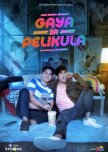
For the second time this year, the Phillipines has decided to show the world how BL should be done.
Like in the Movies is a beautiful, intelligent, layered discussion of coming out and having the courage to seize control of your life.
Like Gameboys before it, it has the perfect mix of brains and heart.
A sparse production with few characters and even fewer sets, Like in the Movies is obviously another victim of filming restrictions due to Covid19. And yet the show’s filming limitations don’t detract from it. Nothing feels missing.
There’s a lot to like about Like in the Movies right from the first scene, especially around its gleeful embrace of romcom tropes such as fake relationship, forced cohabitation and Odd Couple conflict. But underneath the surface, the show is finely tuned and intricately written but has enough kilig to satisfy the most shallow romcom fan.
If the Phillipines keeps producing BL like this i may not watch Thai BL ever again.
Was this review helpful to you?
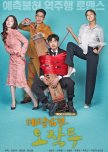
Han Seung-joo, played by Uee, is not just single - she's alone. Her family are judgemental, abusive parasites and her friends have their own lives. She inherits a mountain from her Aunt that her family is intent on developing into a resort. But when she feels threatened in her own home, she decides to hire a man to be her husband. Oh Jak-doo (Kim Kang-woo) is seemingly a lowly herb-gatherer from the mountain she now owns and he accepts the role in exchange for her leaving his mountain home undeveloped.
At the beginning, this drama had an intelligent script that seemed to be at war with the Makjang direction. It doesn't matter how strong or independent you are, it was saying, you still need somebody to be on your side. In essence, everybody needs a mountain. Seung-joo's mountain was both figurative and literal: when things got too difficult for her, she now had somewhere solid and unchanging to rest.
From the start, the Makjang direction was extremely jarring. Full of intense close-ups, overwrought - almost screeching - line deliveries, and long scenes devoted to the bumbling slapstick antics of three mountain Halmeonis, the direction was a sour note in a otherwise enjoyable show.
Unfortunately, by about episode 14 it became obvious the director knew something we didn't. The show veered sharply into Makjang and never recovered. At a daunting 24 episodes, this meant almost half the drama was full of contrived conflict, opaque character motivations and general audience confusion. And screeching. There's a lot of screeching.
While Kim Kang-woo's Oh Jak-doo is often swoonworthy, the show is stolen repeatedly by the affectatious and pretentious Eric Cho as a second male lead, played with a lot of heart and self-awareness by Jung Sang-hoon. Uee also gives her character a lot of strength and vulnerability but both she and Kim Kong-woo struggle with their characters once their motivations get murky.
The performances are not enough to save what is, in the end, a poorly-written and badly-paced soap opera that has little overall point to make about anything.
Was this review helpful to you?
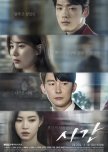
This review may contain spoilers
How would you change if you found out you were going to die soon? Cheon Soo-Ho (Kim Jung-Hyun) is the son of a chaebol; entitled, arrogant and bored. Raised by a psychopathic father and an abusive stepmother he is, despite his wealth, someone who has no purpose in life. Diagnosed with a terminal illness and given only six months to live, he dedicates his remaining time to helping Seol Ji-Hyun (Seohyun), a woman he wronged.
The first half of this drama is dark and bleak but somehow compelling despite the numbingly-depressing tone. KJH shed his school uniform with ease and his acting improved in leaps and bounds to the end of the first half. Seohyun also put in a strong performance, especially when she had scenes with KJH, whose presence elevated her acting considerably.
The controversy behind the scenes of this show is well documented. Kim Jung-Hyun's health problems may have forced him to leave the show early but if there was any vehicle where the writers could have worked without a male lead, this was it. Cheon Soo-Ho's death was inevitable and the show had two strong, complex female leads to work with - even if they didn't have the same level of acting experience.
Unfortunately, the writers seemed to falter at KJH's exit. Maybe the writing fell away, maybe the writing was always this poor. We'll never know what the show should have been, but we do know what it could have been if they'd successfully shifted the narrative to the female lead.
The episodes after his departure highlighted how much of this was held together by KJH's gravitas. Without that, the show digressed into standard - substandard - melo: meaningful looks, shallow. smirking antagonists and people running around without purpose.
In the end, Time became a melo mess: thematically weak and even boring. Without KJH's performance, one is left wondering if the show was always that bad and we just didn't notice. Despite that, the first 12 episodes were relatively strong and so it deserves the higher rating,
And KJH deserves to be flooded with offers once his health improves. Because he quite literally stole this show.
Was this review helpful to you?
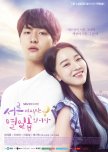
It’s like sunshine on my soul and rainbow skies with fluffy bunny clouds.
If a television show could be a child on a rainy day playing with a dollhouse and making up a story in their imaginative, marshmallow head while drinking hot chocolate and getting hugs from their puppy then this would be that show.
I could devote part of this review to its pacing problems, its thin plot, its treatment of its minor characters, and some of the questionable decisions the writers made in the name of a humour that was at times a little broad. But when you smile for 16 episodes straight and a chicken regularly wanders through, who cares?
The music is wonderful, the cinematography is at times spectacular and the writers have fun - loads of fun - recreating visual odes to films, especially horror films. Show is fun and show has heart and that's really all you need from a rom-com in the end.
Shin Hye-sun is delightful as Woo Seo-ri, the 17-year-old girl who comes out of a 13-year coma to find she's suddenly 30. Yang Se-jong is delightful as Gong Woo-jin, the man who hides his guilt over the accident with a misanthropic grumpiness. And Ahn Hyo-seop is delightful as Yoo Chan, Woo-jin's nephew who is 19 and just on the verge of adulthood. In fact, I'd love to think of another synonym for 'delightful' right now but that describes almost every character in this show - major or minor.
The main trio is rounded out by the robotic, classics-quoting housekeeper, Jennifer (Ye Ji-won) whose rote delivery and deadpan randomness is... delightful.
Every one of these characters is delightful but what I really love is the show’s underlying message about control and our ultimate lack thereof. It's not actually about trauma so much as the fact that growing up means reconciling your dreams with the reality of life and your own limitations. You can't control your physical limits any more than you can control whether a bus crashes.
As you grow older, doors in your life close. But if you have the patience to wait through the intermission, a window will open and the amazing second act can begin.
Was this review helpful to you?
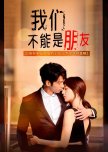
Unfortunately, Taiwanese dramas have a mould. Sometimes what comes out of that mould can be flavoured differently. But it is, unfortunately, a somewhat superficial change.
So let's talk first about what this drama is trying to be. It's trying to be an intelligent and nuanced conversation about two unhappy people maintaining relationships out of habit and obligation whose mutual attraction shocks them into re-evaluating their lives. And in many aspects, Before We Get Married succeeds admirably. The core story underpinning it is good with strong characterisation, excellent performances and fine writing. Taiwanese dramas are known for having real people having real conversations in realistic ways and this drama is no exception. How it begins and how it ends are good and the ways in which the characters move around each other within the text is generally good too. Some of the emotional beats between Weiwei and her fiancé, for example, are utterly perfect. Painful and frustrating but perfect. Puff Gao and Jasper Liu have extraordinary chemistry and it's not hard to believe they want to tear each other's clothes off throughout.
So, then, it's the execution that becomes a problem. And this is where that Taiwanese drama mould comes in. The show is marketed as a sexy infidelity drama but ultimately the cheating is meant to be a mere impetus to the character's development. As such, the show struggled with how to deal with incorporating cheating while not alienating an audience that was likely to respond negatively to it. Like a lot of infidelity dramas it tried to have its cake and eat it too, metaphorically speaking. Weiwei had to have an affair while not actually having an affair. Weiwei and Kehuan's respective others had to be progressively terrible so we'd feel the infidelity was justified. Both partners were obsessive and controlling but it seems as though this was deemed insufficient to justify the emotional affair to the audience and so greater sins were thrown into the pot, often in random and frustrating ways.
The show's first episode and THAT scene was the perfect example. The conversations between Weiwei and Kehuan in episode 2 show that this incident was supposed to be consensual; the first volley in an affair. Instead it was a disturbing non-consensual incident that framed Kehuan as a potential abuser and possible rapist. I have no idea what it's doing in this show or what we were supposed to think about it. That also goes for the camping incident, which did neither lead any favours.
As the show progressed it began to opt for cliched Taiwanese romcom scenarios to portray our couple as being destined for each other. At the same time it tied itself up in knots to make sure that Weiwei could deny a sexual relationship when the time came. And it's true - Weiwei wasn't leaving her boyfriend for another man, she was leaving him for reasons that were entirely her own. Trying to do this plotline within the context of an active affair probably seemed too complex and too difficult for writers of a 13-episode Taiwanese show. Especially when they were no doubt pressured to imply that this new relationship was in fact Twu Wuv when instead it was about two people who just really wanted to bone each other.
Whether this show falls down by not delivering on the sexy it teased or whether it falls down because it made the leads unlikeable due to their infidelity is a matter of personal preference for the average viewer. Either way, it was a frustrating and sometimes tedious watch as Weiwei prevaricates and dithers and recommits to the wrong man and Kehuan turns from a complicated win-at-all-costs manipulator into the Perfect Male Lead and everyone starts working together for reasons that make no sense except that Taiwanese writers need new scenarios, stat. The last thing this needed to be was a workplace drama.
Overall, what this drama was trying to do was very good, original and interesting. A new flavour if you will. But what it actually needed was a whole new mould.
Was this review helpful to you?
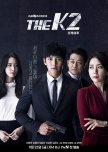
A modern re-interpretaion of Snow White, this show could have been so amazing with some tight editing and a female lead chosen for her acting rather than her fan base. Yoona was terrible, the action was too emphasised, the real female lead was sidelined in lieu of an awful romance cliche and in the end it was a giant mess.
The biggest positive was the acting of some of the cast, especially Ji Chang Wook (the Huntsmen) and Song Yun Ah (the Evil Queen). Their performances were exceptional and their chemistry was off the charts. If the show had concentrated on that dynamic rather than shoehorning in the world's most boring romance with Snow White, this show would have been significantly better. The action scenes were brilliantly choreographed but in the end too pervasive.
Basically, when this show was channelling its fairy tale source material it was borderline genius. The rest of the time it was just terrible - nothing borderline about it.
Was this review helpful to you?
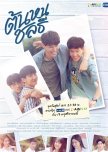
Just... enough.
This drama was terrible and then at the end they have a woman being whipped through the streets like some kind of mediaeval witch trial while her rapist friend gets off scot free and another woman being treated as an incubator.
I blame everyone who was melting down on Twitter about how romantic this whole thing was and convinced me to watch it when it was deeply problematic, deeply sexist and even normalised homophobia and excused sexual assault and cheating.
Just stop.
Stop.
The end.
Was this review helpful to you?
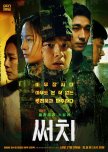
As far as the genre goes, Search is a pretty good example with excellent performances by the wonderful Jang Dong Yoon as the military dog handler Yong Dong Jin and a strangely (but welcomingly) sombre and cerebral Krystal as the military forensic scientist, Son Ye Rim.
The two used to date - a fact that is utterly superfluous to the plot and could have been jettisoned without us noticing - but end up in a joint operation in the demilitarized zone after there are reports of a disease spreading in the area. Jang Dong Yoon is an amazing up and coming actor who clearly wanted to branch out after his two previous roles (both performances of which were extraordinary) and does very well with the role. Krystal is also good in a natural and understated performance with none of the apparent "I am acting!" quirks and ticks that a lot of Idols seem to pick up.
While the show benefited both from being only 10 episodes and from good casting, direction and production, the script suffered from some usual OCN weaknesses. There was a lot of people in uniforms and identical haircuts running around shooting at each other in the dark and one day somebody will learn this is NOT good television. A lot of good character beats were introduced and then forgotten, like a Chekhov's gun that did not go off (why DID Ye Rim suddenly and unexpectedly break up with Dong Yoon a year ago? And if it's not important why dwell on it so much?). And some of the editing seemed more about fooling the audience or confusing them with time jumps than anything else.
The final episode was unfortunately utterly ridiculous. And while the show successfully walked that fine line between our suspension of disbelief and falling off a cliff for most of its run, it leapt into the chasm at a full jump in episode 10.
So while I enjoyed watching Search quite a lot, I can't declare it great television. But for a bit of mindless fun and quite a good example of a classic OCN drama, it's worth a binge.
Was this review helpful to you?

A tight 13 episodes, intricately and perfectly plotted, the show has lovely performances by Alice Ke and Greg (Han) Hsu, a great soundtrack and a fascinating twisty-turny plotline. A love story between Huang Yu Xuan (Alice Ke) and Wang Quan Sheng (Greg Hsu) across space, time and reality, Someday or One Day might be a time travel drama or a parallel universe drama or a doppelganger drama (or possibly all three). For me to outline the plot would be for me to spoil the plot. And that says something about just how ambiguous and enigmatic the show is.
It’s rare for a show with a supernatural element to be so real, so emotional and so raw but Someday or One Day is as heartwrenching and bittersweet as it is intelligent and challenging. It will have you speculating wildly and attempting to puzzle out its mysteries, while agonising with its characters and feeling their every pang of love, pain, loss, grief, confusion and joy. Someday or One Day manages to be complex and intriguing while never compromising on the very real human emotions being experienced by the characters. Verisimilitude within the magical is almost impossible to adequately capture and yet these writers have done it.
In the midst of the unreal, these people feel real. And they feel real in a way that is truly raw and truly human.
While it's far too early to declare this the best show of 2020, I am anyway. It was almost perfect.
Was this review helpful to you?

My Engineer is the new SOTUS ripoff we never needed. Senior engineering student Bohn (a much less green Cooper in his first lead since My Bromance) bullies freshman medical student, Duen (Poy) by making him bring him a rose every day. The couple fall for each other and embark on a relationship that is half weirdly sexless, half abusive.
As well as Duen being exceedingly weird about any kind of skinship to the point where it's uncomfortable, Bohn freaks out almost every episode at Duen even talking to another man and then gaslights him into apologising when he's in the wrong. Think Until We Meet Again meets 2 Moons. Yes it's that weird. If Duen isn't freaking out because his boyfriend wants to spend time with him alone, Bohn is freaking out because Duen interacts with other people. Duen responds to all of this with a weird vacant smile that makes you wonder if he's mentally deficient in some way.
Of course all their close group of friends are also secretly gay and we end up with a number of other romances between them. The best of these is RamKing (Perth and Lay), whose relationship is almost worth tuning in for. The worst of these is BossMek, where Ryan's character Mek eventually gets his straight friend, Boss (Inntouch) by aggressively Nice Guying him in a way that feels coercive.
The show is predictable, generic and derivative. It has almost no plot and is written to a standard BL formula. For me at least that formula is tired. If you wanted to fast forward entirely to the RamKing scenes, you wouldn't be missing anything. Or just skip it completely.
Was this review helpful to you?

 1
1


















